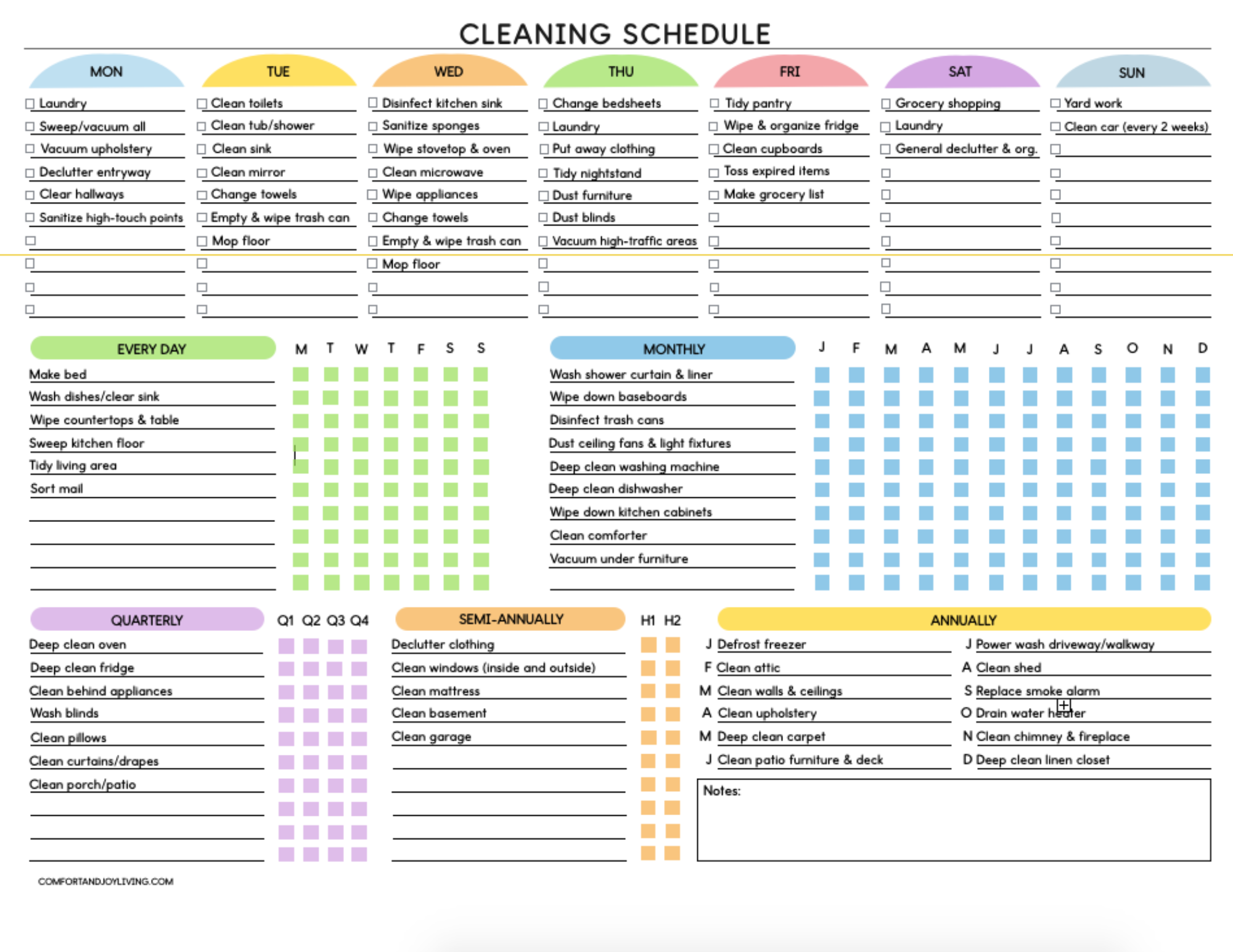Weekend & Monthly Events for Kids and Families, plus Summer Camp Guides:
Atlanta Boston Chicago Houston Los Angeles
New York City Philadelphia San Francisco Washington D.C.
RECIPES DIY PARENTING KIDS CRAFTS HIRING NOW (JOB BOARD)
|
Editable Cleaning Schedule - $3.30 |
10 Grocery Shopping Habits
That Are Costing You Money
I remember the first couple of grocery shopping trips my husband and I made when we were newly married. We were both pretty bad at grocery shopping. The first time, the total came to be about $100 and when I got home, I realized that I only bought enough food to make enough meals for 3 days. The second time we went, the total came to around $150 and we had enough food to make meals for 4 days. Since we couldn’t afford to be spending over $250 on groceries every week, I know I had to figure some things out.
I finally realized a couple of big mistakes that i was making that were costing us a lot of money. I started seeing our bill become lower and lower at the grocery store. Now, I feel like I have grocery shopping down to a science. I went from spending $250 a week to spending around $50 a week. That’s a savings over $10,000 a year! Do you want to lower your grocery bill? Check out these ten grocery shopping habits that are costing you money.
1. Going Without a List
You should have a list of everything that you plan to buy. Plan out your meals, what you need for those meals, and a few things for breakfast and snacks. Then, when you get to the store, make sure to stick to your list.
Without a list, you’ll be more likely to not get enough for your meals, or too much of what you don’t need and wind up wasting what you buy. When I don’t make a list, I fill up my cart, but never have enough for enough meals for the week, requiring me to make extra trips to the store, spending more money and time.
2. Not Making a Weekly Meal Plan.
In addition to your list, you need to know what you’re going to make with the food on your list. It’s not as helpful to know that you need to buy chicken, as it is to know that you need chick for chicken and rice burrito bowls. Because then you’ll actually use all the ingredients you buy.
3. Buying Out of Season
Purchasing fruits and vegetable when they’re in season is a great way to save money. Plus, they taste a lot better when they’re in season too. You’ll find deals on in-season produce on the front of store circulars.
If you’re really craving something that’s not in season now, you can buy it frozen. Vegetables are flash frozen so they retain their nutrients and you can always find a good deal on them. If I’m craving strawberries in the winter, I’ll pick up a frozen package and make smoothies out of them.
4. Not Checking Expiration Dates
Although grocery stores are responsible for removing expired items, there are time when things slip through the cracks.
By simply checking the expiration dates of products, you can save yourself a few bucks. And even though every store will give you a refund on expired items, that’s more money on gas and time that you have to spend.
Checking the expiration dates also allows you to pick the freshest products, giving it a longer life and increasing the likelihood of finishing it without having to throw some away. This is particular useful for dairy products.
5. Not Checking the Grocery Store Flyer.
To help you decide whether to stock up on pork or beef tenderloin, check out your local store’s weekly flyer. You can find all the deals and promotions that will save you money, while filling up your refrigerator.
6. Assuming the Store Brand is Always Less Expensive
Store brands are know to be significantly cheaper than more well-known brands, but things have changed. If you never look past the generic brands, you may be miss out on some major savings.
I’ve seen so many larger brand products go on sale for the same amount or much less than store brands, and if you find a coupon, you can reduce the cost even more.
And don’t forget to check for coupons on money-saving apps like Ibotta for even more savings.
7. Shopping While You’re Hungry
It’s a time-old tale—If you go to the store when your stomach is growling, you’re more likely impulsively put more things in your cart that weren’t on your list. Make sure to avoid being hungry in the snack aisle at all costs.
8. Not Buying in Bulk
If your family eats a lot of something, buy it in bulk. In most cases, you can save a lot of money by purchasing in bulk. Buy the larger boxes of cereal, buy the big frozen bags of chicken instead of the smaller packages of chicken. Just make sure it is something that your family loves and will eat.
9. Not Checking Your Receipt
How often do you go to the store, make a purchase and just place your receipt into your bag or your pocket without looking at it? I used to do this all the time, especially when grocery shopping.
Everyone makes mistakes and cashiers are no exception. Plus, if you’re looking to take advantage of a sale or offer, you want to make sure the discount was applied to your purchase.
10. Not Comparing Prices
Whenever you shop for anything, you should compare prices because this it will let you know whether you’re getting the best deal or you’re overspending on a particular item. Usually, you can easily compare pricing in one store since most food items are grouped together. As long as you’re not committed to certain brands, you can compare pricing, ingredients,, etc, to see how you can save.
Also, look through weekly circulars from different stores to see which ones are offering specific sales so that you can buy items from there. You can also check price comparison apps to see the best deals from stores. Store loyalty can be just as bad as brand loyalty, so try out different stores for your grocery shopping.
LEAVE A REPLY
Your email address will not be published.

